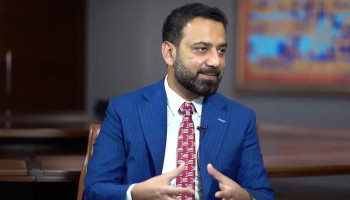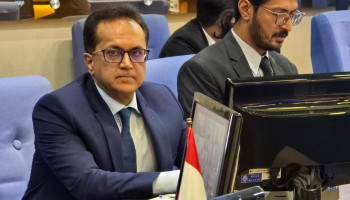
A top official of the Karachi-Electric (KE) has vowed that the company, which is the sole power supplier of the city, has set a target of generating 30% power supply from renewable sources.
Speaking during a panel discussion 'Risk to reward: Climate Solutions' at the 8th Edition of The Future Summit (TFS) on Thursday, Sadia Dada, Chief Distribution and Marketing Officer of KE, spoke about the company’s ambitious target of reduction in scope 1 emissions by 20% by the year 2030.
During the discussion, Dada referenced KE's recent 10% reduction in Scope 1 emissions, equating to almost 0.8 million metric tonnes the previous year alone.
To support this vision, KE has made specific pledges, Dada explained. She also mentioned that KE will not generate additional megawatts on imported fuel, and by 2030, 30% of the utility’s power supply will come from renewable sources.
Read more: K-Electric consumers to pay additional Rs0.4 per unit from January 2025
Founder & CEO at Planetive Middle East and Planetive Pakistan Ayla Majid while addressing a question about achieving net zero and the current position emphasised the need for a strategic approach to energy transition and decarbonisation which are interlinked, acknowledging that high energy costs impact all sectors.
Philip Skinner, Head of Middle East, North Africa & Pakistan, GuarantCo and Origination Lead for Nature, Private Infrastructure Development Group (PIDG), highlighted that the most impactful nature-based solution is to directly invest in nature itself, particularly through infrastructure that relies on healthy ecosystems.
He pointed out that Pakistan’s favourable geographic location positions it well for nature-based solutions such as wind farms and mangrove plantations. For example, planted mangroves not only enhance biodiversity but also save around millions in maintenance costs.
Former SBP governor Shamshad Akhtar while sharing her observation said that while the private sector is leading progress, the public sector needs to follow suit and appreciated that the non-profit sector is leveraging necessary skills.
She emphasised the need for strategised thinking, citing the success of the textile industry as a model for nationwide growth. Akhtar also stressed the importance of a centralised approach to address provincial challenges and manage institutional issues effectively.
















